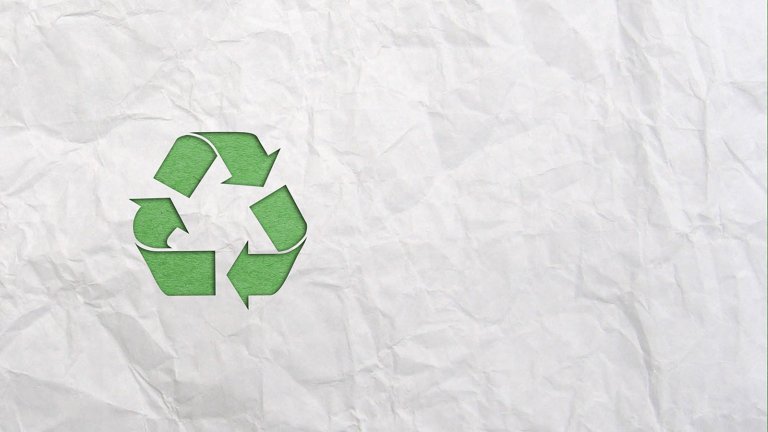
Recycling: Can paper serve as a role model for plastics?
In the past, one sector already underwent a radical transition towards more recycling—can the plastics sector learn something from the experiences of the paper industry?
In Germany, the share of recycled paper used during the paper production is likely to reach around 75% in 2018—this is the highest percentage worldwide. The situation is still quite different when it comes to plastics, even though a large part of these materials is already being reutilised. The share of recycled materials in domestic products, however, is estimated to reach only about two percent on average. In the electronics industry it is only 1%, and in the construction sector it might reach approximately 10%.
In order to reach the current level, paper manufacturers have had—since paper production began—much more time than plastics recyclers. They have had about 500 years. However, paper containing a share of recycled materials of 100% was only introduced to the market in Germany in the 1980s, and, as is always the case, it was a bumpy start: even in the 1990s eco-paper was still known for its three negative attributes: its grey colour, its lack of smoothness and its tendency to cause copy machine jams. The ink also did not stick properly to the paper and the paper itself tended to yellow. Nevertheless—and despite its higher price—grey, recycled writing paper became fashionable in the alternative scene after some time. The willingness of these consumers to pay a surcharge was motivated by the fact that the consumers knew about the lower environmental impact of the paper. Later, consumers were able to easily identify these products thanks to the ecolabel “Blauer Engel”.
Gradually, the mostly still new providers went through a learning process and long-established companies jumped on the bandwagon. Recycled paper became available in brighter varieties at a higher quality. Today, graphic recycled paper can, in terms of its quality, hardly be distinguished from newly produced paper made out of the primary raw material wood—except when extreme ageing resistance is required. Many consumers deliberately choose recycled paper; many others at least accept it. In 2017, the administrations of 28 German cities used only recycled paper, as has been the case for all printed newspapers for some time now.
Could plastics recycling experience a similarly positive development? The technical challenges are sometimes greater, but, unlike paper, plastic does not tend to decompose even when the pressed bales have to be, for example, temporarily stored outdoors due to a momentary drop in demand.
The Blue Angel provided a great boost
The Blue Angel, which gave recycled paper such a great boost, is now also being prominently presented on waste bags made out of plastic and on outdoor products if they contain a share of recycled materials of at least 80%. According to a study by the Dutch University of Twente, the willingness to pay for eco-certified recycled paper is increasing twice as fast as in the case of non-certified paper—this is also based on the fact that buyers don’t have to read through complex information on the packaging first.
As soon as the word gets around among producers that recycled plastics provide an ecological added value, the prospects for the production and sale of recycled products will improve—especially considering that large companies such as Ikea, Unilever and Proctor & Gamble have recently announced steps in this direction. If such products are increasingly placed on the market, their buyers will be more likely to recognise the importance of separating them via the yellow recycling bags, which, in turn, will make it easier to produce high-quality recycled plastics.
As far as public procurement procedures are concerned, Brandenburg could build on the good experience had in Great Britain: in the case of larger construction projects the mandatory share of reutilised materials must reach at least 10%—and this also applies to all products containing plastics.
